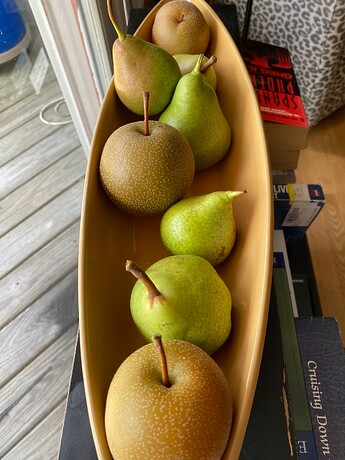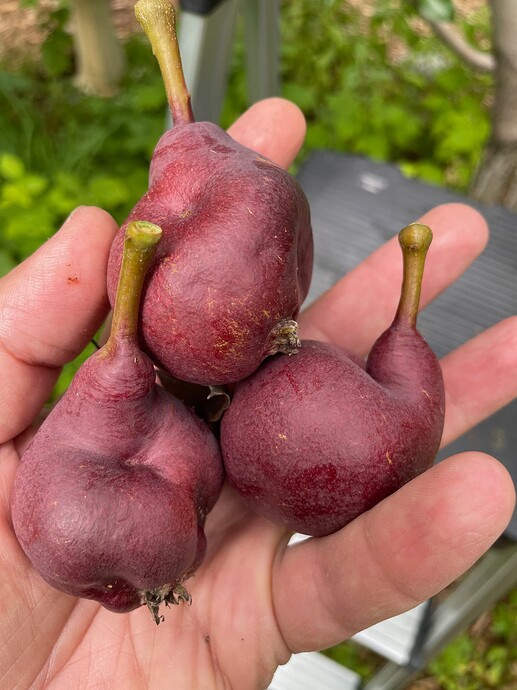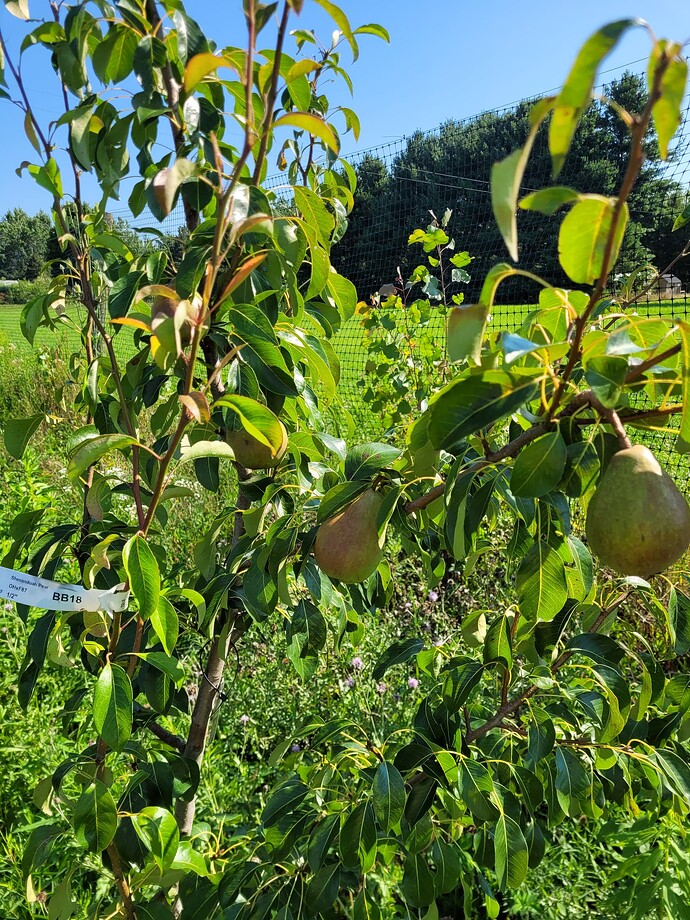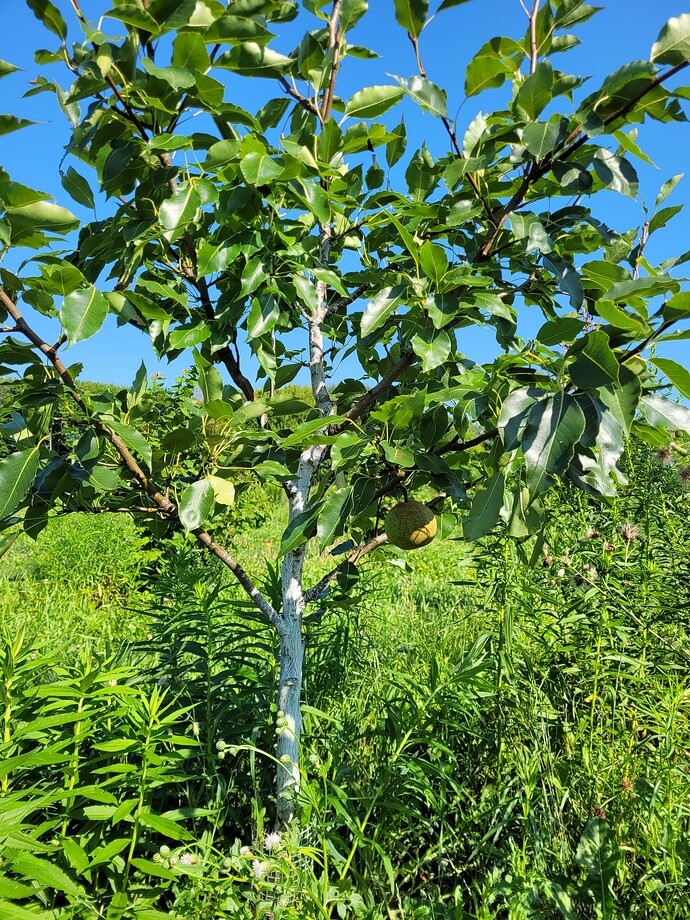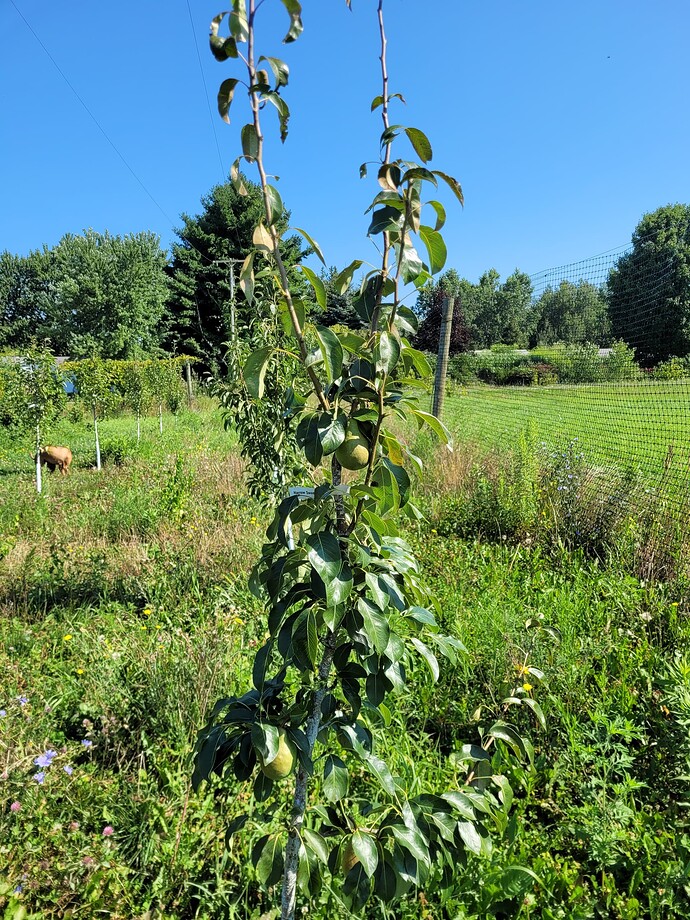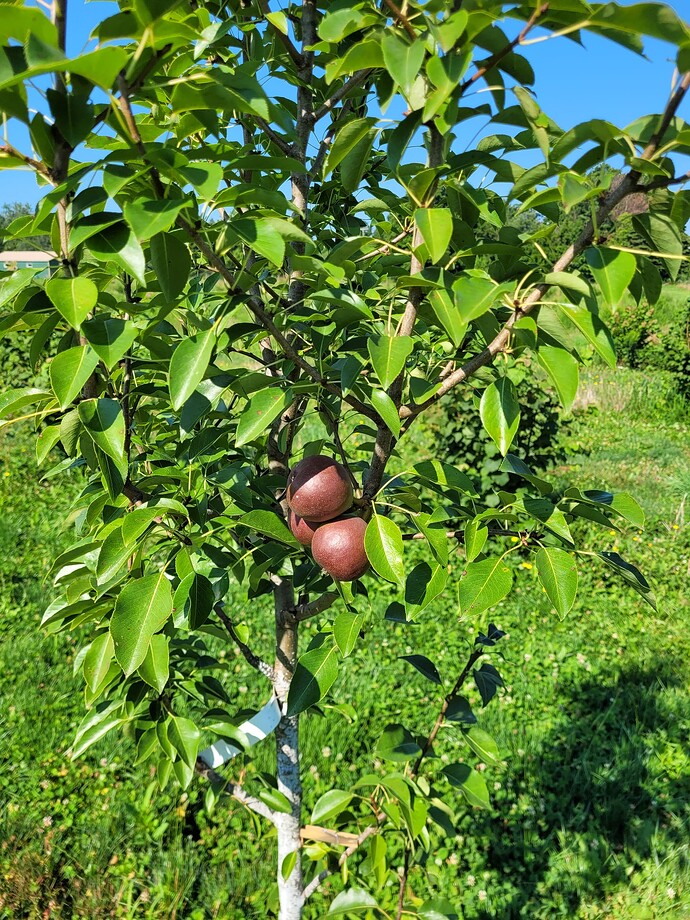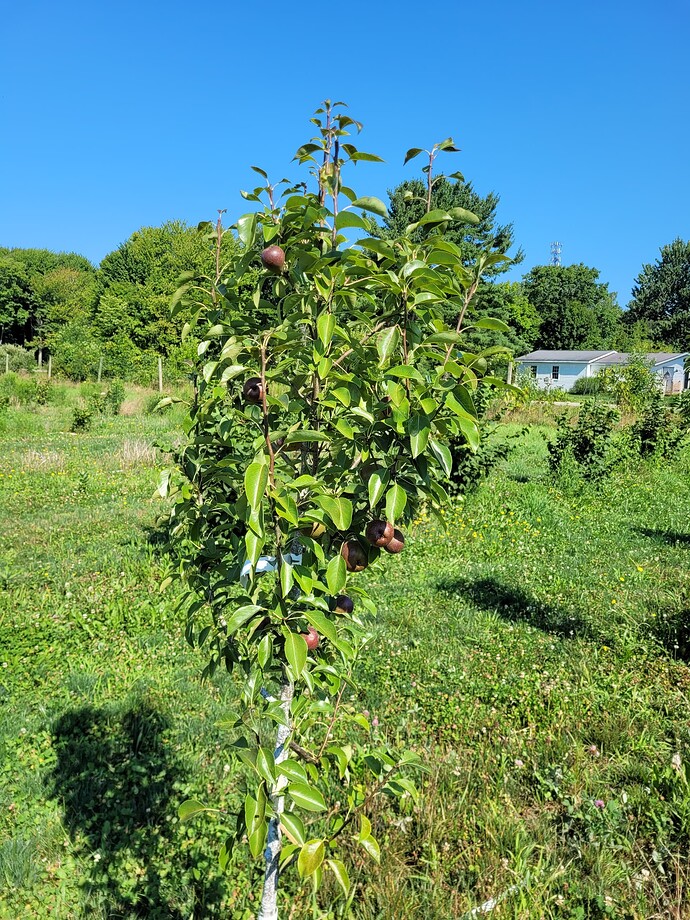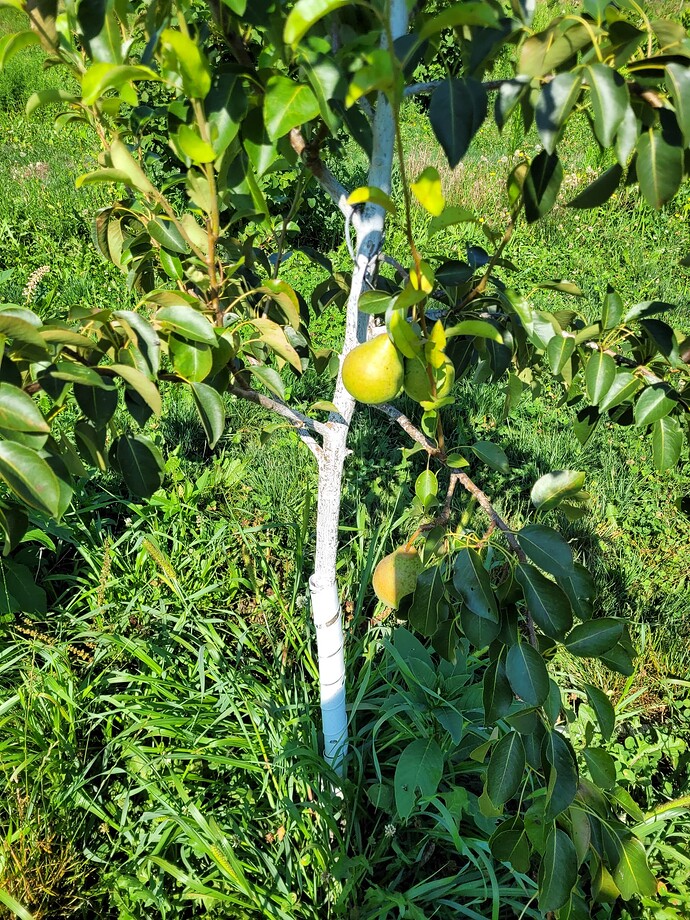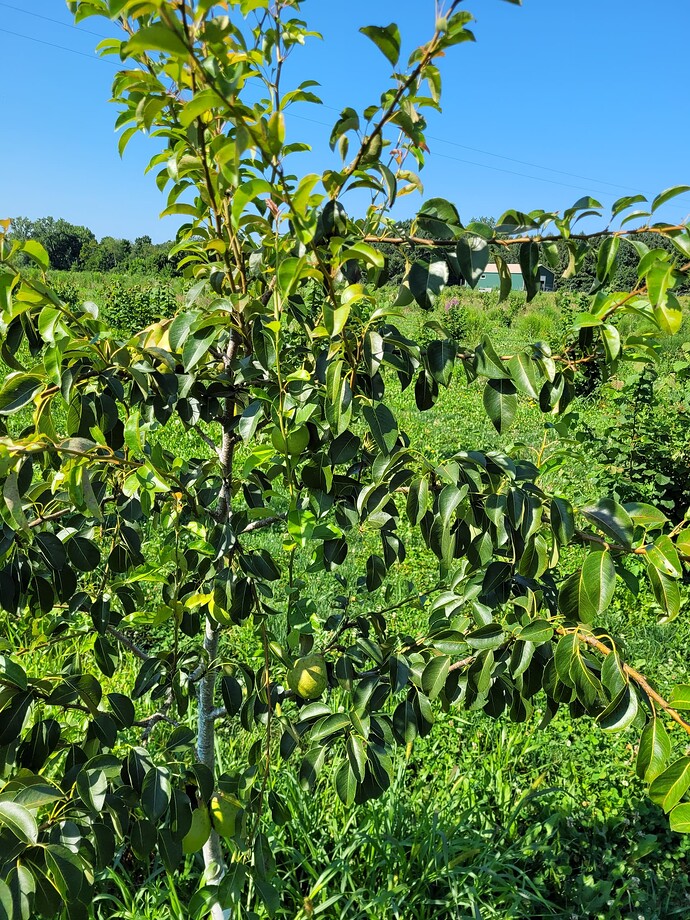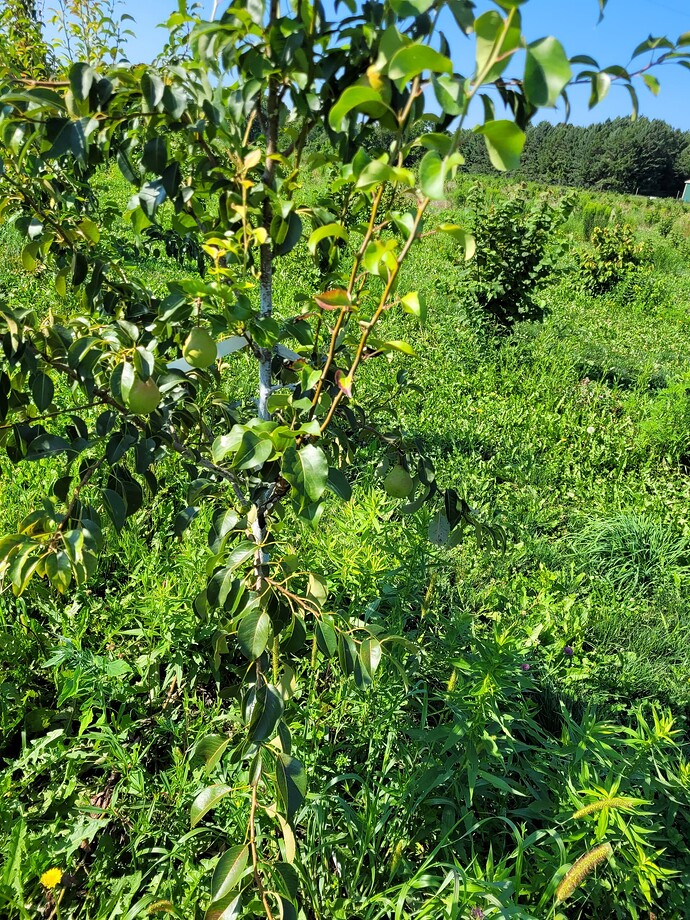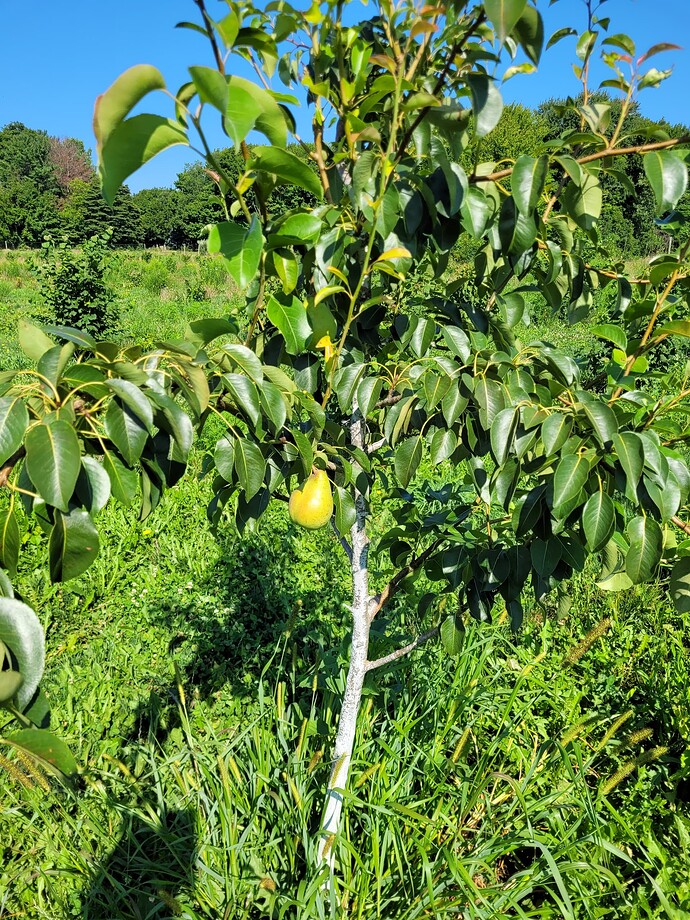This comment is a little off topic. I also use a section of Orient as a trunk builder before grafting on my other varieties. I think that this Orient section in a bad fireblight year could at least save the trunk and root sections. As of now I haven’t had any total tree kills.
I’m glad you made that comment. You and i use similar methods to get a crop. Fireblight is the hardest disease that i deal with here in Kansas. Now that they are declaring war on callery in Kansas it makes my life much harder. An interstem like orient is a must. If fireblight kills the top im out of production for 2 or 3 years. If it kills the roots it cost me 7 years + of hard work. There are still many callery roots in my orchard that have been there for 5-30 years. They decided last year they wanted no new plantings of callery. The rabbits and deer are a problem with ohxf rootstocks
The remaining rootstocks get fireblight
When i plant pears first i think about the dirt, then i think about the rootstock, finally i think about the scion wood and the crop. Bill i guess you should have brought this up first. Thanks for posting that reminder about disease otherwise people reading this are in for some heartache. Fireblight kills the trunk of ohxf rootstocks but typically something grows back from the roots. BET or bartlett seedlings will just be dead. I have one ohxf rootstock killed 3 times to the ground. It sprouts something up. Maybe it needs to be an orient tree this time. Im not just talking about an interstem. I jokingly refer to my orient and kieffer as potato pears. They keep us from starving and there are lots of them. Like @Lucky_P always says you learn to love them for what they are. I enjoy the tough old fireblight resistant pears. There are many better quality pears for selling and trading like warren and ayers. i enjoy those also that are fireblight resistant.
After a 10 year wait, it is looking like my Aurora pear tree on OHx87 could finally (fingers crossed) yield a few fruits. Putting the cart ahead of the horse, but what is the best ripening procedure for these? Do they ripen like the Bartlett/Williams parent?
@Auburn - Bill, it really is! I am going to have to start marking mine with a Sharpie, out in the orchard, in order to remember which variety is which, when I bring them in. So far - Honey Sweet is the best. But it’s still early. I am having a difficult time determining which are ripe enough to take from the tree. And then not sure what the best thing is, to do with them. Refrigerate them till they ripen? Leave them on the counter? Most are still rock hard. - I’ve just been pulling a pear ‘here and there’ - one that comes off without a fight - and cutting them.
Nice looking pears. I gave the ones I picked a light washing and put them on the counter for the grands. After one day they were all gone.
101 reasons why I use callery rootstock for my pear grafts.
- I have a few hundred of them surrounding my home.
- Fireblight is endemic to the area.
- A high proportion of callery seedlings are highly resistant to fireblight.
- I have them, like the vigor they impart, and love the fireblight tolerance.
Also:
Quite a few of my Clapp’s Red pears this year are deformed from insect bites. I’ve had to remove quite a few. Makes thinning easier I suppose.
What insect is doing this, stinkbugs? Or are there numerous culprits I need to contend with?
Plum curculio?
Plum curculio and possibly a few stink bugs.
Missed some my eye. It was deliberate! ![]()
If your able to harvest that Mishirazu give us a report. I’ve been wanting to add it. The guess one kind of looks like Ayers.
Will do! Beautiful tree, great crotch angles. I have great hopes for this one. I’m in no hurry to pick it and hope it sugars up.
Here is information on getting good ripe honeysweet pears, I myself have got zero edible pears on it so far, our tree is in it’s 9th year in ground, and it appears to hate our climate, I think that it struggles in any climate colder than yours Pear blooming chart, spec. Honeysweet - #21 by DMend
Close…Seckel
In what sense? Is this a must have variety?
Karl’s Favorite aka Ewart is a good pollen source for other varieties. It is a decent pear in the “buttery” group. It also has decent fire blight resistance. Bell is a result of a cross with Karl’s Favorite as a grandparent.
It is a must have in my opinion. It is delicious and has all the points @Fusion_power mentioned.
Spinosad, which is OMRI approved for organic use, will easily get rid of tent caterpillars. It is effective on plum curculios, too, but you have to keep spraying after rains. On the tent caterpillars, one dose is enough.
